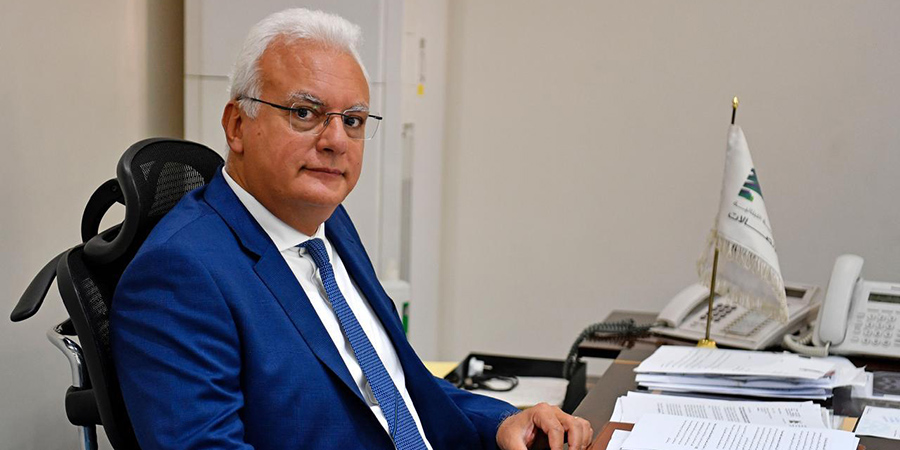It goes without saying that the telecommunications industry is the beating heart of a country. In times of crisis, it is the first resort to ensure business continuity, especially for vital sectors. Lebanon, which has circumvented challenging times, has always relied on the telecoms and ICT sectors.
In light of Lebanon’s current economic and geopolitical instability, Telecom Review conducted an exclusive interview with His Excellency Johnny Corm, Lebanon’s Caretaker Minister of Telecommunications, to find out how the ministry has been addressing and adapting to challenges, and identify whether the sector is fully prepared to face new crises should they arise.
Contingency Plan
Lebanon is currently experiencing multi-sectoral turmoil due to the war in Gaza and its aftermath, raising concerns that the conflict could spread across the entire country.
Commenting on the telecommunications sector’s preparedness, Mr. Corm affirmed that, “We have drafted a contingency plan in coordination with the health ministry and rescue committees to ensure communication. We’re also working on an internal communication plan via an intranet to ensure that all ministries are connected. We’ve also elaborated on a detailed business continuity plan with the telecom operators, Alfa and touch.”
He reiterated that the Ministry of Telecommunications is tirelessly striving to ensure connectivity should the situation deteriorate further.
When asked about the possibility of connecting to Starlink, he explained that he fully supports connecting Lebanon to Starlink given its technical and commercial benefits. However, he noted that it is not as straightforward as it might seem.
Related: Orbiting Excellence: The Maturity of Satellite Tech
“Starlink has agreed to give us the logs and destination IP but only upon signing a binding agreement that provides the ministry the exclusive rights to benefit from Starlink service and guarantees judicial accountability in Switzerland. The concerned parties in Lebanon wanted for Starlink to guarantee that before signing an official agreement—that’s why discussions to adopt Starlink services have failed,” noted Mr. Corm.
He explained that some parties expressed concerns over data privacy and security, especially given that the regulatory authority in Lebanon is currently inactive.
“I have called upon the concerned parties to reactivate the role of the telecommunications regulatory authority ever since I took office. However, in light of the presidential vacancy, efforts were rendered void,” he explained.
5G: A Far-Fetched Goal
4G is currently widely deployed across all Lebanese territories by both mobile telecom operators, however, 5G has not been commercially deployed yet. “For now, we’re working on the necessary upgrades of the systems so that they’re compatible with 5G. Successfully launching 5G requires huge capital investments whereby the number of 5G stations should be at least double what we have now with 4G to be able to commercially launch it. At this stage, we’re not ready to launch it. We prefer to meet all the technical and financial requirements first to be able to provide consumers with a fully reliable 5G network,” expounded Mr. Corm.
He added, “The main issue here is also return on investment. We’ve been closely watching the experiences of other countries who have deployed 5G, and we prefer to keep our guard up and stick to a fully functioning and reliable 4G network before moving to a technologically attractive option.”
Watch: Telecom Review explored the difficulties of the Telecom and ICT sector in Lebanon
Read More: Telecom Review Presents Virtual Panel, 'The Telecom Sector in Lebanon: From Pioneering to Collapse'
Privatization of the Telecommunications Sector
Lebanon’s most recent telecom law (established in 2002) calls for the restructuring and privatization of state-owned telecom assets, the establishment of an independent telecom regulator tasked with enforcing competition, and partial liberalization of the sector. However, 22 years later, most of the provisions of this law have still not been implemented.
When asked whether the privatization of the Lebanese telecoms sector will be implemented anytime soon, Minister Johnny Corm, concluded, “Privatization should meet several conditions to succeed, including a solid banking system able to attract foreign investments. I’m a firm advocate of privatization given the flexibility that it can bring to the public sector; however, under the right circumstances, and at the right time.”










